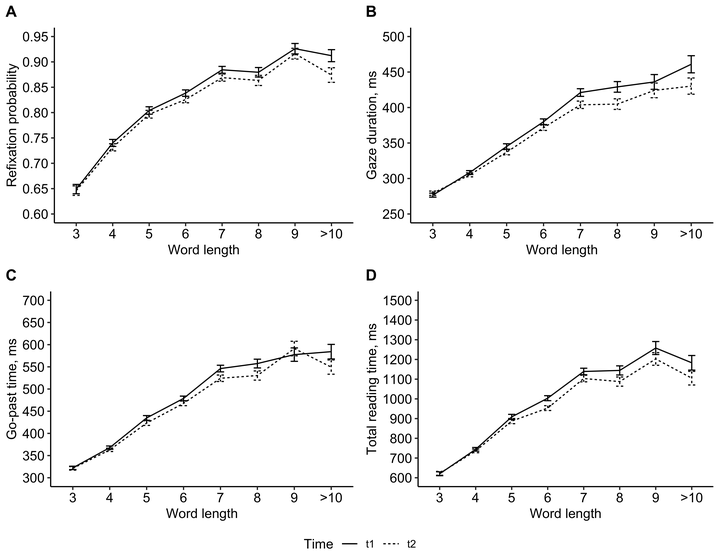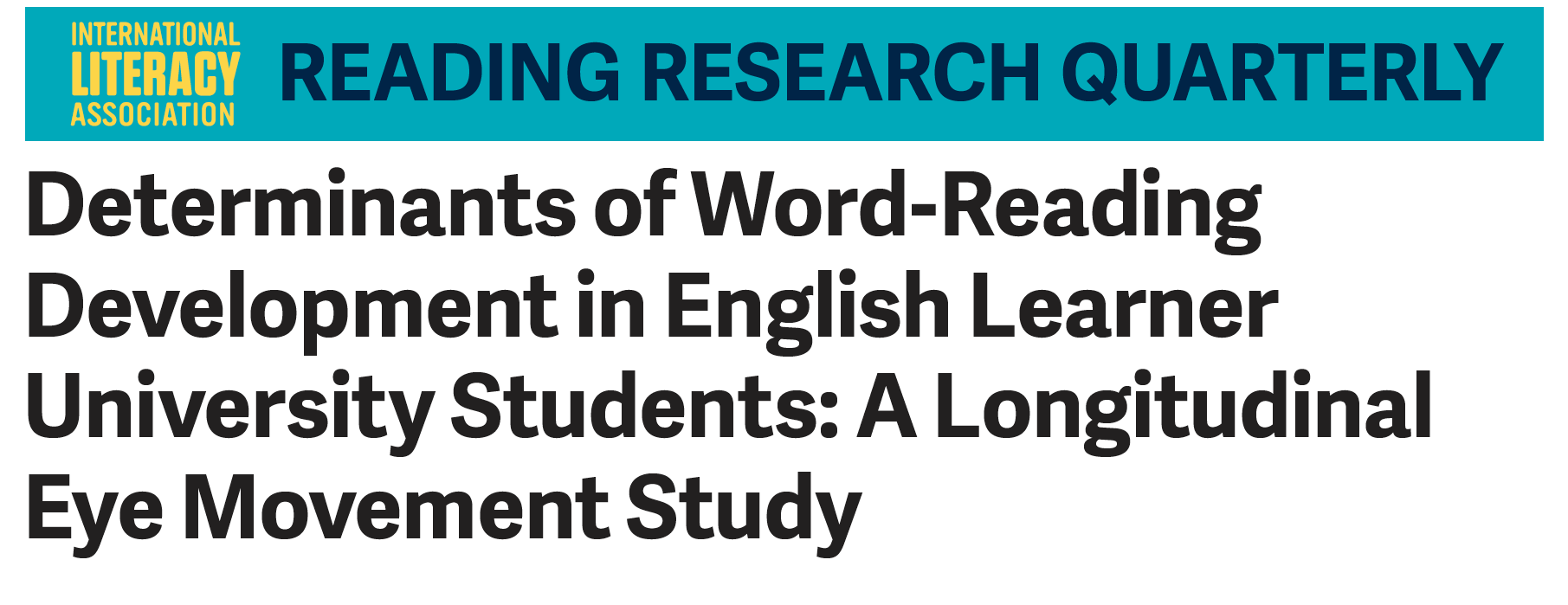
 What are the cognitive and language skills that most contribute to successful reading development in EFL readers? In this longitudinal study in collaboration with Dr. Anna Moro, we used eye movements as a window into the reading strategies of EFL students. Eye movements are an excellent way to study reading because they provide very precise information about where and when the eye moves during naturalistic reading. We asked how word reading behavior changed over the 26-week period of the bridging program, and which text-based and reader-based characteristics predict change. See the abstract of the paper
here.
What are the cognitive and language skills that most contribute to successful reading development in EFL readers? In this longitudinal study in collaboration with Dr. Anna Moro, we used eye movements as a window into the reading strategies of EFL students. Eye movements are an excellent way to study reading because they provide very precise information about where and when the eye moves during naturalistic reading. We asked how word reading behavior changed over the 26-week period of the bridging program, and which text-based and reader-based characteristics predict change. See the abstract of the paper
here.
This study was motivated by the lack of research which assesses the factors that play a critical role in EFL reading development. It is important for educational practitioners to understand as early as possible which factors affect reading development so that they can allocate pedagogical resources accordingly.
Our study showed that EFL bridging program students showed the greatest changes when reading long words. We interpret this result as a sign of more effective decoding during reading, the cognitive process of converting orthographic symbols to the sounds that they represent.

We used random forests, a machine learning algorithm, to identify the cognitive and language skills of EFL students that are most important for learning to read. We found that incoming phonological awareness and vocabulary size growth were particularly important factors that predicted developmental changes in eye-movements.
